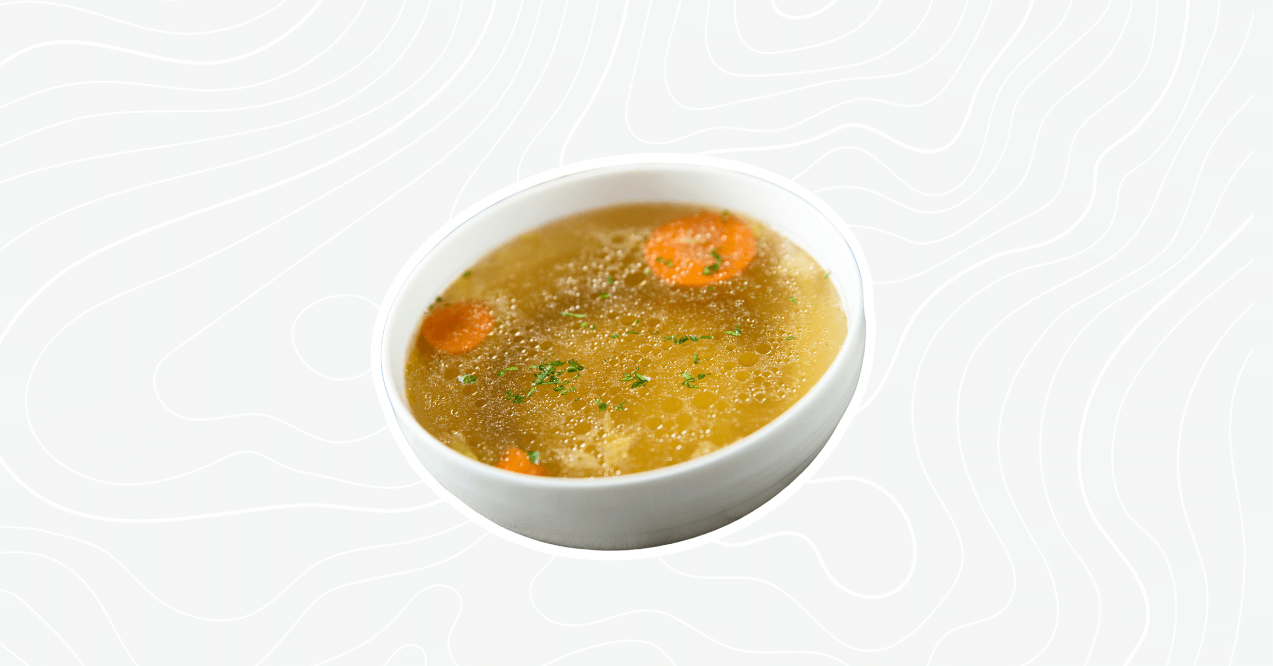5 Mushroom Benefits for Women
Historically, mushrooms have held a place of esteem in various cultures, not only as a culinary delight but also for their medicinal properties. Many ancient civilizations recognized mushroom benefits for women, their healing capabilities and potential to support mind clarity. Women have used them for centuries to address health issues specific to their biology.
Today, science is beginning to uncover the truth behind these traditional practices, revealing how mushrooms may support hormonal balance, boost immunity, and provide essential nutrients vital for women’s health. From the shiitake known for its immune-enhancing properties to the lion’s mane mushroom, celebrated for its potential to support cognitive health, we’ll explore how these natural wonders might be a powerhouse for women.
In this article, we delve into the top five mushroom benefits for women, highlighting how these fungi may play a pivotal role in women’s health and wellness. Join us as we uncover the intriguing connection between mushrooms and women’s health, backed by both historical wisdom and modern science.
Key findings:

Why are Mushrooms Important for Women’s Health?
Mushrooms, often overlooked as a mere culinary ingredient, are in fact a powerhouse of nutrients that hold particular significance for women’s health. Their importance stems from a unique blend of vitamins, minerals, and antioxidants that align closely with the specific nutritional needs of women.
For instance, mushrooms are one of the few non-animal sources of Vitamin D, an essential nutrient for bone health. Women, especially those at risk of brittle bones, benefit greatly from this, as Vitamin D aids in calcium absorption, crucial for maintaining strong bones.
Additionally, mushrooms are rich in B vitamins, including riboflavin (B2), niacin (B3), and pantothenic acid (B5), which are vital for energy production and the maintenance of healthy red blood cells, skin, and eyesight.
Selenium, a powerful antioxidant found in mushrooms, plays a critical role in supporting the immune system and combating oxidative stress, which is linked to several chronic diseases. This is particularly beneficial for women who are often the primary caregivers in families, requiring robust immunity to maintain their health and the health of those they care for.
Furthermore, mushrooms are a low-calorie food, rich in protein and fiber, making them an excellent choice for weight management, a concern for many women due to metabolic changes at various life stages.
In summary, the nutritional profile of mushrooms – encompassing essential vitamins, antioxidants, and minerals – aligns remarkably with the unique health needs of women.
Mushroom Benefits for Women
1. Metabolic Health
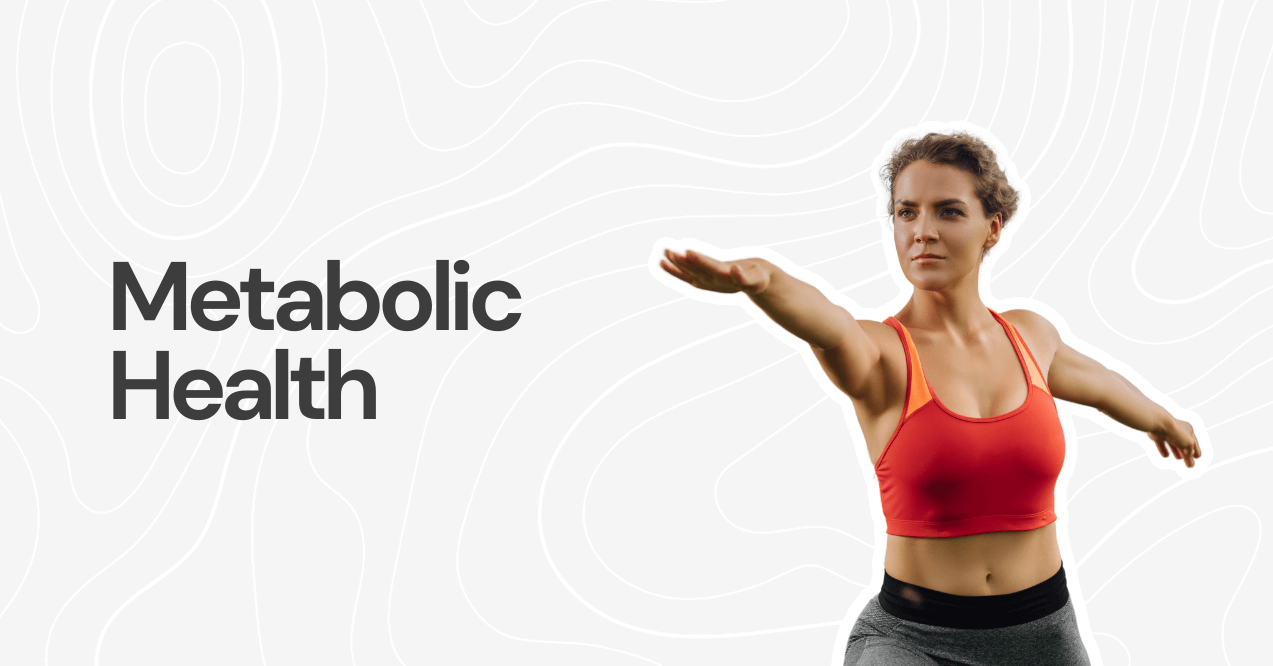
Mushrooms are a powerhouse of metabolic benefits for women, primarily due to their unique composition of nutrients.
The high fiber content in mushrooms is particularly beneficial for digestive health. This fiber aids in maintaining consistent energy levels and helps in the gradual absorption of nutrients, which is essential for a balanced metabolic rate.
They also contain bioactive compounds that may influence the body’s way of processing fats and sugars, supporting a healthy balance in the body’s metabolic processes. Incorporating mushrooms into one’s diet may thus be a strategic move for women aiming to support their metabolic health.
Their nutrient-rich profile not only aids in maintaining a healthy weight and energy levels but also contributes to overall well-being without the need to focus on specific conditions or diseases.
2. Brain Support
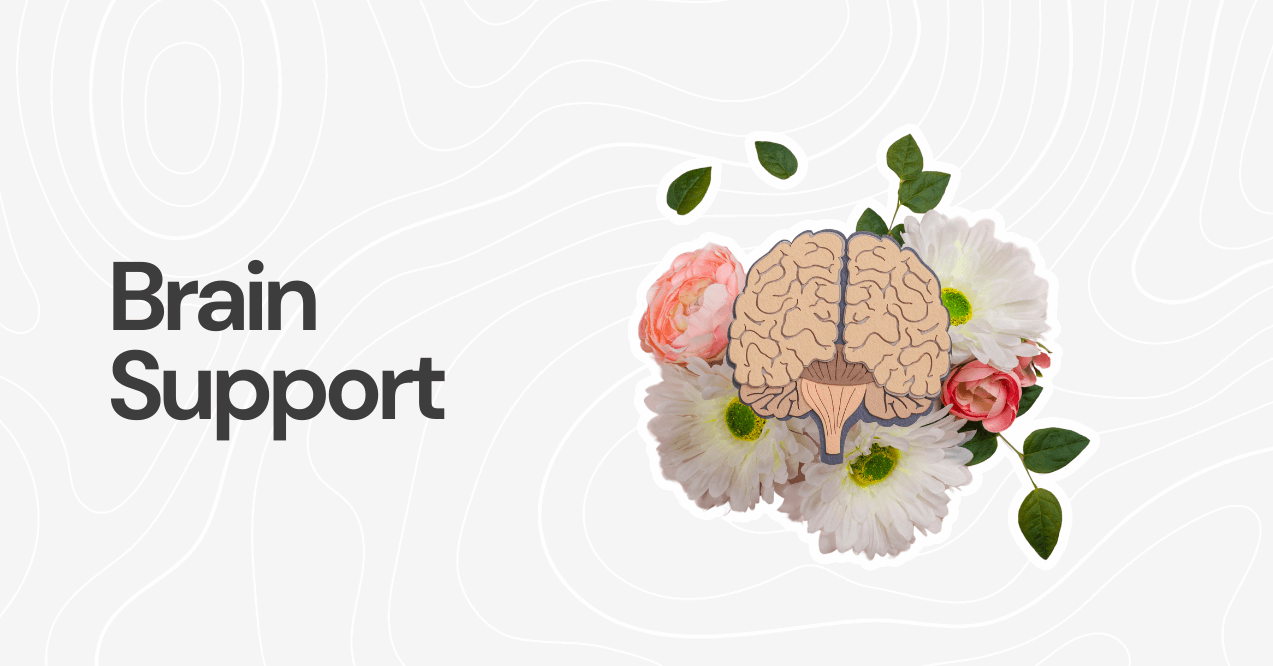
The Lion’s Mane (Hericium Erinaceus) benefits for females are substantial, as it contains compounds that may stimulate the growth of brain cells and potentially improve the functioning of the hippocampus, a region of the brain crucial for memory and emotional responses.
This makes lion’s mane an invaluable ally in promoting mental clarity and focus, a concern for many women juggling multiple roles and responsibilities. Besides lion’s mane, other mushrooms like reishi and cordyceps also contribute to brain health.
They are among the best mushrooms for mental clarity due to their high antioxidant content. These antioxidants combat oxidative stress in the brain, a factor that might affect cognitive function. Regular consumption of these mushrooms may help in maintaining mental agility and supporting cognitive processes, such as concentration and memory.
3. Better Skin
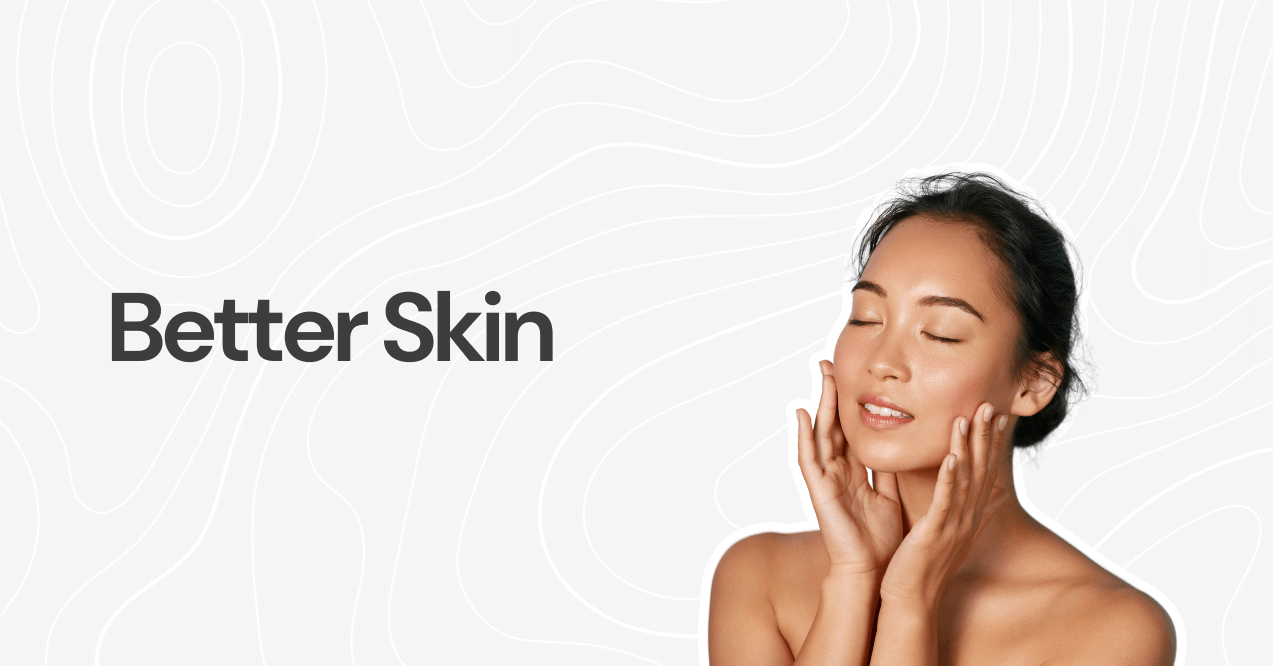
Mushrooms, particularly the Reishi variety, formally known as Ganoderma lucidum, are a boon for women seeking natural ways to enhance their skin health. The reishi mushroom benefits for women extend significantly to skin care, thanks to its unique composition of antioxidants and anti-inflammatory compounds. Regular incorporation of reishi mushrooms into the diet may lead to healthier, more resilient skin.
Reishi’s polysaccharides are known to enhance the skin’s natural ability to retain moisture, a key factor in maintaining a youthful and vibrant complexion. Hydrated skin not only looks more supple and smooth but is also better equipped to defend against environmental stressors.
Furthermore, the antioxidants in reishi mushrooms potentially help in reducing the appearance of fine lines and wrinkles, thanks to their ability to neutralize free radicals that accelerate aging signs.
Additionally, reishi mushrooms contain triterpenes, compounds that have been shown to improve skin tone and texture, aiding in the reduction of skin conditions that women often confront. These natural substances might help in balancing skin’s natural oil production, which is crucial for those dealing with either overly dry or oily skin.
4. Supports Energy Levels

Mushrooms, particularly Cordyceps, are increasingly recognized for their ability to support energy levels in women. The cordyceps benefits for females include enhancing physical stamina and reducing fatigue, making them a sought-after natural supplement for those leading active or demanding lifestyles.
This unique mushroom works by increasing the body’s production of adenosine triphosphate (ATP), which is essential for delivering energy to the muscles. Additionally, cordyceps is known for its potential to improve oxygen utilization, further boosting endurance and energy levels.
An innovative way to incorporate these benefits into a daily routine is through mushroom coffee, a blend that typically includes ground coffee beans and powdered medicinal mushrooms like cordyceps. Many wonder, what does mushroom coffee taste like? The answer is quite surprising; mushroom coffee tastes very similar to regular coffee, with a slight earthy undertone, making it an enjoyable and familiar experience for coffee lovers. It offers the stimulating effects of caffeine coupled with the health benefits of medicinal mushrooms, providing a balanced energy boost without the jitters often associated with high-caffeine beverages.
For those interested in recipes using mushroom coffee, it’s quite simple. You might either buy pre-mixed mushroom coffee packets or make your own blend by adding mushroom powder (like cordyceps) to your regular coffee grounds before brewing. This not only infuses your coffee with the energy-supporting benefits of mushrooms but also offers a novel and healthful twist to your morning routine.
5. Supports Your Immune System
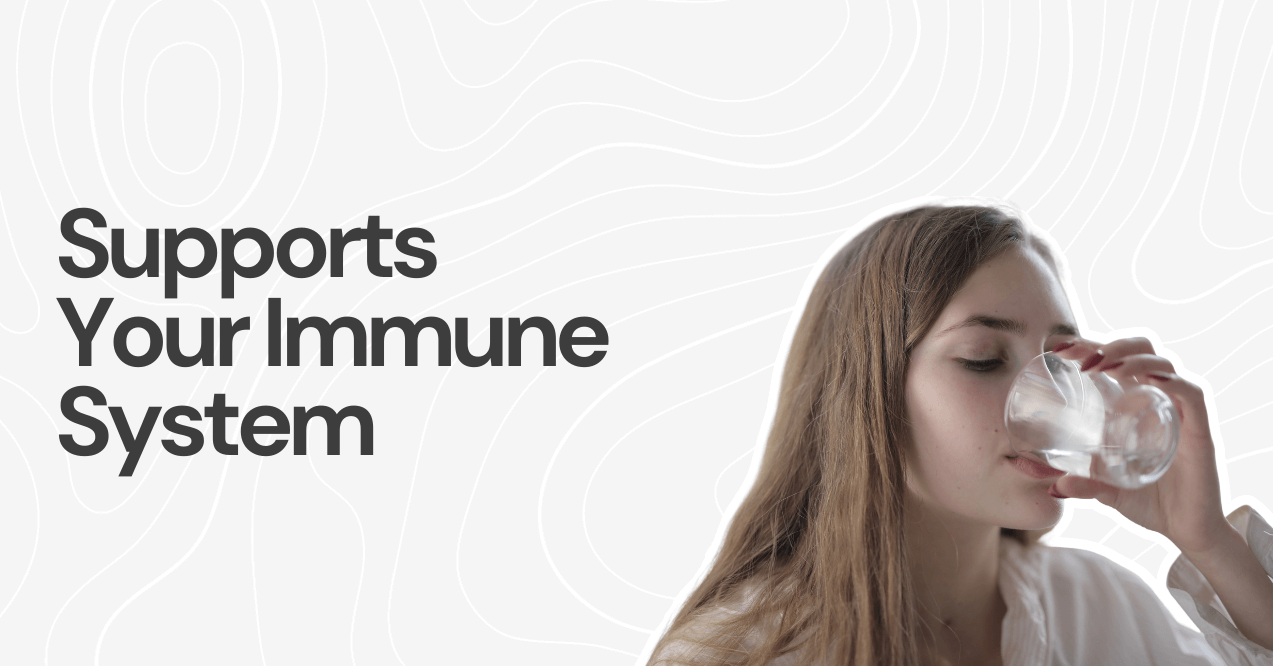
The mushroom benefits for women in terms of immune support are rooted in their rich content of beta-glucans, natural polysaccharides known for their ability to enhance immune defenses. These compounds stimulate the activity of immune cells, such as macrophages and natural killer cells, bolstering the body’s ability to ward off pathogens.
This immune modulation is particularly beneficial for women, as it helps maintain a balanced and responsive immune system. Beyond beta-glucans, mushrooms are also abundant in antioxidants like selenium and vitamins B and D, which play a pivotal role in strengthening immune function. These nutrients work synergistically to protect the body against oxidative stress and inflammation, common factors that may compromise the immune system.
For women, this means better resistance against common illnesses and a stronger defense against environmental stressors. Furthermore, certain mushroom varieties, such as Shiitake and Maitake, have been specifically recognized for their immune-boosting properties.
Regular consumption of these mushrooms might contribute significantly to enhancing immune resilience, an important consideration for women who often juggle multiple responsibilities and are exposed to varying stress levels.
Are Mushrooms Good for Your Heart?
Mushrooms are a beneficial addition to a heart-healthy diet, primarily due to their unique composition and inherent properties. These versatile fungi are low in calories, making them an excellent choice for overall heart health. One of the most significant benefits of mushrooms is their high fiber content. Dietary fiber is crucial for heart health as it aids in maintaining a healthy digestive system and supports overall cardiovascular function.
Furthermore, mushrooms are rich in antioxidants like ergothioneine and selenium. These antioxidants play a vital role in combating oxidative stress in the body, a factor that might affect heart health. By neutralizing free radicals, mushrooms help in protecting the heart and blood vessels, contributing to their health and resilience. Another key aspect is the presence of essential nutrients in mushrooms, such as potassium and vitamin D. Potassium is important for maintaining healthy blood pressure levels, a critical factor in heart health.
Regular consumption of potassium-rich foods like mushrooms may help in managing blood pressure within a healthy range. Additionally, mushrooms are a natural source of vitamin D, a nutrient often lacking in many diets. Vitamin D plays a role in numerous bodily functions, including the health of the cardiovascular system. Including mushrooms in the diet may help ensure an adequate intake of this vital nutrient.
Do Mushrooms Affect Hormones?
Mushrooms have garnered interest for their potential effects on hormones and the endocrine system, though much of this research has been conducted on animal models.
For example, some mushrooms contain phytoestrogens, plant-derived compounds that mimic estrogen in the body. These phytoestrogens might potentially influence estrogen levels, which play a crucial role in various bodily functions in women.
Additionally, certain varieties of mushrooms, such as Reishi and Cordyceps, have been studied for their adaptogenic properties. Adaptogens are substances that help the body adapt to stress and normalize bodily processes. These mushrooms may support the adrenal glands, which produce hormones responsible for stress response, potentially aiding in the balance of cortisol levels, the body’s primary stress hormone.
Furthermore, mushrooms like the Lion’s Mane have shown potential in supporting brain health, which is closely tied to the endocrine system. They may influence the production of nerve growth factors, which may impact brain functions that regulate hormonal balance.

Conclusion
Mushrooms are recognized in various cultures for healing capabilities, particularly in addressing women’s health issues. Studies reveal mushrooms’ role in supporting hormonal balance, boosting immunity, and providing vital nutrients. Mushroom benefits for women’s health include:
- Nutritional Profile: Rich in Vitamin D for bone health; Abundant in B vitamins for energy, red blood cell maintenance, and skin/eyesight health; Contains Selenium, an antioxidant for immune support; Low-calorie, high in protein and fiber, aiding in weight management.
- Metabolic Health: Fiber-rich, aiding in digestive health and balanced nutrient absorption.
- Brain Support: Lion’s Mane enhances brain cell growth and hippocampus functioning, aiding mental clarity.
- Skin Health: Reishi mushrooms’ antioxidants and compounds improve skin hydration and texture.
- Energy Levels: Cordyceps increases ATP production, boosting physical stamina; mushroom coffee provides a balanced energy lift.
- Immune System: Beta-glucans enhance immune cell activity; Shiitake and Maitake are known for immune-boosting properties.
- Heart Health: High fiber content supports cardiovascular function; Antioxidants and potassium regulate blood pressure and combat oxidative stress; Vitamin D contributes to overall cardiovascular health.
Enjoyed the article? You might want to know what are the amazing mushroom powder benefits as well!
The best mushrooms for heart health are shiitake, oyster, and maitake. Shiitake mushrooms support overall cardiovascular health, oyster mushrooms are abundant in heart-friendly antioxidants, and maitake mushrooms contribute to balanced blood pressure levels, collectively forming a robust team for enhancing heart well-being.
For menopause, reishi, shiitake, and cordyceps mushrooms are highly beneficial. Reishi helps in balancing hormones and managing stress, shiitake supports overall well-being with its rich nutrient content, and cordyceps boosts energy levels and vitality, addressing common concerns during the menopausal transition.
Advertisement. This site offers health, wellness, fitness and nutritional information and is designed for educational purposes only. You should not rely on this information as a substitute for professional medical advice, diagnosis, or treatment. If you have any concerns or questions about your health, you should always consult with a physician or other health-care professional. Do not disregard, avoid or delay obtaining medical or health related advice from your health-care professional because of something you May have read on this site. The use of any information provided on this site is solely at your own risk.
Advertisement. This site offers health, wellness, fitness and nutritional information and is designed for educational purposes only. You should not rely on this information as a substitute for, nor does it replace, professional medical advice, diagnosis, or treatment. If you have any concerns or questions about your health, you should always consult with a physician or other health-care professional. Do not disregard, avoid or delay obtaining medical or health related advice from your health-care professional because of something you may have read on this site. The use of any information provided on this site is solely at your own risk.







